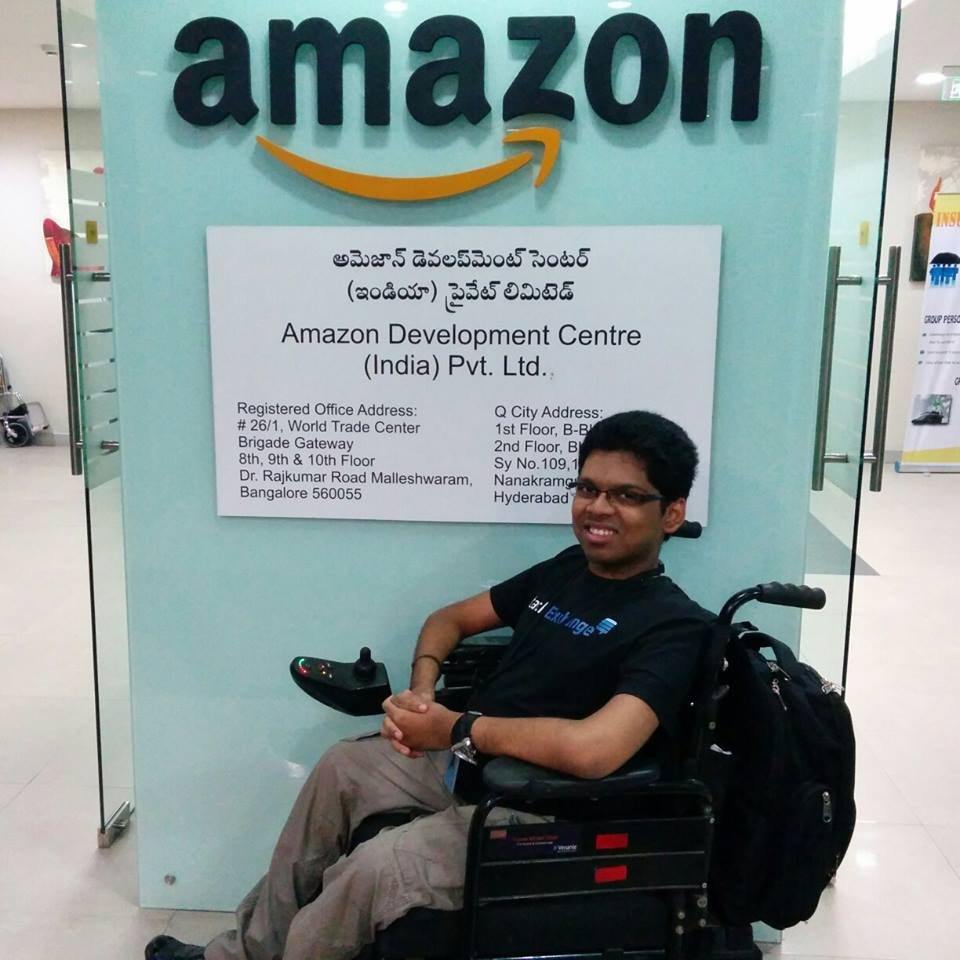New Delhi : A para athlete today alleged that she was "ill-treated" by the crew of a private airlines and "forcefully offloaded", even as the airlines refuted the claims.
Madhu Bagri, a wheelchair tennis player, said that she had booked herself on a SpiceJet flight from Tirupati to Hyderabad, which was scheduled to take off at 8.25 am. But she was later evicted from the aircraft.
According to the athlete, she was unable to reach her seat as the wheelchair could not fit in between the aisles of the aircraft, leading to an argument with the crew.
"As the aisle was not wide enough for the wheelchair, I was asked to walk or crawl to reach my seat in the third row. When I asked the crew to accommodate me in the front row, they told me that it was an emergency seat and that differently-abled people were barred from occupying it," Bagri told PTI.
"They threw me out with my baggage and left me at the arrivals section of the airport without giving me any solution to reach my destination," she complained.
The tennis player has lodged a complaint with the airport director.
The airlines, however, denied any manhandling and ill treatment of the sports person.
"On reaching the aircraft, the passenger insisted on having the front row seat. All front row seats in Q400 Bombardier aircraft are emergency exit rows and hence, passengers with any kind of disability are not allowed to sit on these seats as per the Directorate General of Civil Aviation (DGCA) rules," a SpiceJet spokesperson said in a statement.
The airline said Bagri was offloaded as the plane was getting delayed, adding that "at no point was she manhandled or mistreated and the SpiceJet women staff assisted her out."
As per the DGCA rules on Carriage by Air - Persons with Disability and/or Persons with Reduced Mobility, airlines shall not allocate those seats to persons with disability or reduced mobility where their presence would impede the crew in performing their duties, obstruct access to emergency equipment or impede emergency evacuation path of the aircraft."
The aviation body also mandates that in case a differently-abled passenger is offloaded, the airline will have to provide assistance.
"If passengers for any reason have to be offloaded, highest possible priority for transportation shall be given to persons with disability or reduced mobility, including their escorts, if any," it says.
SpiceJet noted that it had made arrangements for the athlete on a bigger aircraft which was scheduled to fly later in the day.
"The passenger was given a choice to travel by SpiceJets Boeing flight, which was scheduled to depart at 4:30 pm and she was also informed that the first row seat would be reserved for her. However, the passenger continued to use offensive language," the statement said. PTI JC SRY
indiatoday.intoday.in/story/para-athlete-alleges-mistreatment-by-airlines/1/1026116.html
Controversy
‘Crawl to seat, we don’t care’: SpiceJet crew allegedly insult India’s first wheelchair tennis player
India’s first wheelchair tennis player alleges that she was ill-treated by the Spice Jet crew at Tirupati.
August 14, 2017In an incident reeking of insensitivity, para athlete Madhu Bagri was allegedly illtreated by the crew of Spice Jet at Tirupati airport on Monday.
India’s first wheelchair tennis player, Madhu Bagri was traveling on a Spice Jet flight from Tirupati to Ahmedabad via Hyderabad. Narrating her ordeal, Madhu alleged that the crew had asked her to “walk, crawl or do anything to reach” her seat. This as the aisle on the aircraft was too narrow to accommodate her wheel-chair.
Madhu says that despite her appeals to give her another seat, the crew tried pushing and pulling the wheelchair, without showing any sensitivity. When she refused to comply with their instructions, she says, “They picked up the aisle wheelchair, wherein my head was almost touching the roof and I was on the verge of falling down, as I lost balance.” Madhu alleges that the crew on-board the aircraft refused to understand her situation, and alleges misbehaviour on the part of officials. The tennis player then says that along with her luggage, she was thrown out of the aircraft and left unattended at the airport.
42-year-old Madhu Bagri is India’s first wheelchair tennis player, and has reached a career high world ranking of 113.
This is not the first incidence of the differently-abled being mistreated by airline crew. In the past, Paralympic silver medalist Deepa Malik about insensitivity shown by Vistara airlines in 2016.#TNExclusive | India's para athlete, Madhu Bagri, mistreated at the Tirupati airport; asked to crawl to her seat pic.twitter.com/9SnJAtZ9Gq— TIMES NOW (@TimesNow) August 14, 2017
The 43 year-old shotput player alleged that the crew were poor at handling the wheelchair, and also complained of rude behavior by the cabin crew.
She had pointed out that the crew were not trained on how to shift a person from a wheelchair to the cabin.
Subsequently, Vistara airlines apologized and initiated a probe into the matter.




